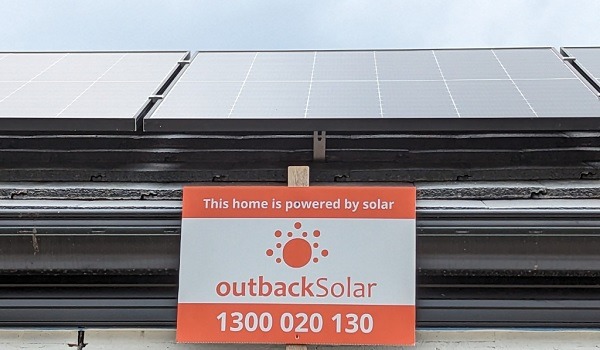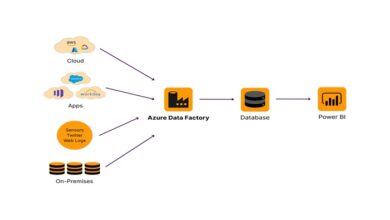Sustainable Solutions: Enhancing Lifestyle with Solar Panels in NSW

Australia, known for its abundant sunshine, has been increasingly turning to solar energy as a sustainable solution to meet its energy needs. In New South Wales (NSW), solar panels have become a popular choice for homeowners and businesses alike, offering numerous benefits that go beyond just reducing electricity bills. This article explores how solar panels are enhancing lifestyles in NSW and contributing to a more sustainable future.
Harnessing Solar Power
NSW’s abundant sunlight presents an ideal opportunity for harnessing solar power. With over 2,600 hours of sunshine annually, residents and businesses can tap into this renewable resource to reduce reliance on fossil fuels and mitigate environmental impact, contributing to a cleaner and more sustainable energy future.
Abundant Renewable Resource
NSW boasts ample sunlight throughout the year, making it an ideal location for harnessing solar power. With an average of over 2,600 hours of sunshine annually, residents and businesses in NSW have a significant opportunity to tap into this abundant renewable resource and reduce their dependence on traditional fossil fuels.
Environmental Benefits
One of the primary reasons for the growing adoption of solar panels in NSW is their positive impact on the environment. By generating electricity from sunlight, solar panels, installed by reputable Solar Installer NSW, produce clean, renewable energy without emitting harmful greenhouse gases or pollutants. This not only helps mitigate climate change but also reduces air and water pollution, contributing to cleaner and healthier communities.
Energy Independence
Solar panels offer homeowners and businesses greater energy independence by reducing reliance on the grid. By generating their electricity on-site, solar panel owners can offset a significant portion of their electricity consumption, especially during daylight hours when solar production is at its peak. This self-sufficiency provides a sense of security against power outages and fluctuations in energy prices.
Grid Stability
Moreover, the widespread adoption of solar panels can contribute to grid stability and reliability in NSW. Distributed solar generation helps alleviate strain on the grid during peak demand periods, reducing the risk of blackouts and brownouts. Additionally, excess solar energy can be fed back into the grid through net metering programs, further supporting grid resilience and enhancing overall energy security.
Economic Advantages
Installing solar panels in NSW offers substantial long-term cost savings. As energy prices rise and solar panel costs decrease, homeowners and businesses can enjoy significant returns on investment. Government incentives and rebates further enhance economic benefits, while job creation stimulates local economies and supports renewable energy industries.
Cost Savings
Installing solar panels offers substantial cost savings on electricity bills over the long term. With rising energy prices and decreasing solar panel costs, homeowners and businesses can enjoy significant returns on their investment in solar energy systems. In addition to reducing electricity bills, solar panel owners may also be eligible for government incentives and rebates, further enhancing their economic benefits.
Increased Property Value
Furthermore, solar panels can increase the value of residential and commercial properties in NSW. Studies have shown that homes equipped with solar panels tend to sell faster and at higher prices than those without solar installations. Potential buyers are attracted to properties with lower energy costs and the opportunity to generate their electricity sustainably, making solar panels a valuable investment for property owners.
Job Creation
Another economic benefit of the solar industry is job creation. The installation, maintenance, and manufacturing of solar panels create employment opportunities across various sectors, from construction and engineering to sales and marketing. By investing in solar energy, NSW can stimulate economic growth, support local businesses, and create jobs in the renewable energy sector, contributing to a more resilient and sustainable economy.
Environmental Stewardship
By choosing solar energy, residents and businesses in NSW are actively contributing to the reduction of carbon emissions and combating climate change. Each kilowatt-hour of electricity generated from solar panels displaces electricity that would otherwise be produced from fossil fuels, thereby reducing greenhouse gas emissions. This environmental stewardship aligns with global efforts to transition to a low-carbon economy and mitigate the impacts of climate change.
Conservation of Natural Resources
Furthermore, solar energy helps conserve finite natural resources such as coal, oil, and natural gas. Unlike fossil fuels, which are non-renewable and finite, sunlight is a virtually limitless resource that can be harnessed sustainably for electricity generation. By investing in Solar Panels NSW, residents and businesses in NSW are reducing their ecological footprint and promoting the responsible stewardship of natural resources for future generations.
Biodiversity Preservation
In addition to reducing greenhouse gas emissions, solar energy also helps preserve biodiversity and ecosystems. Extracting and burning fossil fuels for energy production can have devastating impacts on wildlife habitats, air quality, and water resources. By transitioning to clean, renewable energy sources like solar power, NSW can minimize its environmental footprint and protect vulnerable species and ecosystems from the adverse effects of climate change and habitat destruction.
Community Engagement and Education
The adoption of solar panels in NSW is not only about individual benefits but also about fostering a culture of sustainability within communities. Solar installations serve as visible symbols of environmental responsibility and inspire others to take action towards a cleaner, greener future. Community solar initiatives, group purchasing programs, and educational outreach efforts play a vital role in promoting awareness and encouraging widespread adoption of solar energy.
Empowering Consumers
Moreover, solar panels empower consumers to take control of their energy consumption and make informed choices about their environmental impact. Through monitoring tools and energy management systems, solar panel owners can track their energy production and usage in real time, allowing them to optimize their energy efficiency and maximize their solar savings. This empowerment fosters a sense of ownership and accountability for energy consumption behaviors, driving further sustainability efforts.
Educational Initiatives
Furthermore, educational initiatives play a crucial role in promoting solar energy literacy and empowering communities to embrace renewable energy solutions. Schools, universities, and community organizations can offer workshops, seminars, and educational resources to raise awareness about the benefits of solar energy and the importance of sustainable living. By investing in solar education, NSW can cultivate a generation of environmentally conscious citizens who are equipped to address the challenges of climate change and build a more sustainable future.
To Wrap Up
In conclusion, solar panels are transforming lifestyles in NSW by providing a sustainable solution to energy needs while delivering economic, environmental, and social benefits. As the demand for clean energy continues to rise, solar power is poised to play an increasingly significant role in shaping the energy landscape of NSW and beyond. By harnessing the power of the sun, residents and businesses can enjoy greater energy independence, lower electricity bills, and a brighter, more sustainable future for generations to come.



